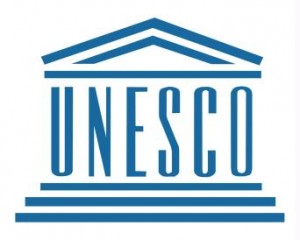 The United Nations Educational, Scientific and Cultural Organization and the Commonwealth of Learning have published guidelines on Open Educational Resources. Its purpose is to “encourage decision makers in governments and institutions to invest in the systematic production, adaptation and use of OER and to bring them into the mainstream of higher education in order to improve the quality of curricula and teaching and to reduce costs.”
The United Nations Educational, Scientific and Cultural Organization and the Commonwealth of Learning have published guidelines on Open Educational Resources. Its purpose is to “encourage decision makers in governments and institutions to invest in the systematic production, adaptation and use of OER and to bring them into the mainstream of higher education in order to improve the quality of curricula and teaching and to reduce costs.”
Click here for the full report.
The report contains guidelines for governments, higher education institutions, academic staff, students, and accreditation bodies.
Some of the recommendations: governments should consider adopting open standards requiring that educational materials developed with government support be made available freely; higher education institutions should enact flexible copyright policies and promote the publication of educational materials as OER; academic staff should consider publishing OER. The complete list of guidelines (each with more detail in the full report), is below:
Guidelines for governments
- Support the use of OER through their policy-making role in higher education.
- Consider adopting open licensing frameworks.
- Consider adopting open standards.
- Contribute to raising awareness of key OER issues.
- Promote national ICT/connectivity strategies.
- Support the sustainable development and sharing of quality learning materials.
Guidelines for higher education institutions
- Develop institutional strategies for the integration of OE
- Provide incentives to support investment in the development, acquisition and adaptation of high quality learning materials.
- Recognise the important role of educational resources within internal quality assurance processes.
- Consider creating flexible copyright policies.
- Undertake institutional advocacy and capacity building.
- Ensure ICT access for staff and students.
- Develop institutional policies and practices to store and access OER.
- Review institutional OER practices periodically.
Guidelines for academic staff
- Develop skills to evaluate OER.
- Consider publishing OER.
- Assemble, adapt and contextualise existing OER.
- Develop the habit of working in teams.
- Seek institutional support for OER skills development.
- Leverage networks and communities of practice.
- Encourage student participation.
- Promote OER through publishing about OER.
- Provide feedback about, and data on the use of, existing OER.
- Update knowledge of IPR, copyright and privacy policies.
Guidelines for student bodies
- Understand the issues of OER and undertake advocacy of OER.
- Encourage their members to publish work as OER.
- Take an active role in assuring the quality of OER through social networks.
- Recognise that ICT are an increasingly important part of the higher education experience and are often crucial for students with special educational needs.
- Encourage student participation in activities to support OER development.
Guidelines for quality assurance/accreditation bodies and academic recognition bodies
- Develop their understanding of OER and how it impacts quality assurance and recognition.
- Engage in debates on OER, in particular on copyright.
- Consider the effects of OER on quality assurance and recognition.
- Accept OER as good practice in quality assurance and recognition.




